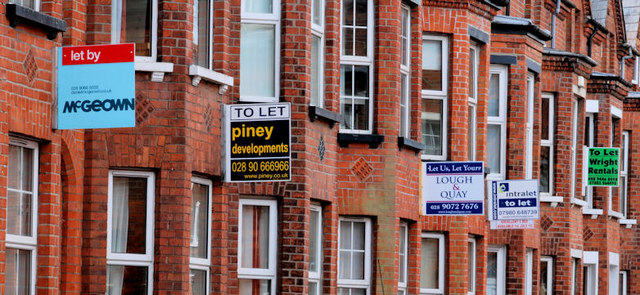Changes in Buy To Let Tax Relief
How Will the Changes in Buy-to-Let Tax Relief Affect You?
If you are a UK landlord, you may already have been reeling as a result of the changes to mortgage interest tax relief; with the recent Autumn Statement adding extra stamp duty, you could find yourself wondering if you can actually continue to make a profit from your property(ies).
What Is the Current Situation Regarding Buy-to-let Tax Relief?
Currently, landlords can offset the cost of the mortgage interest from the rental income when profits are being calculated. As an example, if a landlord collects rental income of £10,000 per annum but pays mortgage interest of £9,000 per annum, the profit is £1,000 and it is this amount on which tax is paid. As landlords pay tax on their profits according to their income band, a landlord in the Basic Rate of tax band pays 20% tax on the profit of £1,000; ie £200 tax. Those in the Higher Rate (40%) tax bracket pay £400 and those paying the Additional Rate of 45% would pay £450.
But this is all set to change from April 2017.
What Are the Changes to Buy-To-Let Tax Relief?
Between April 2017 and April 2020, the cuts to mortgage interest tax relief will be phased in with the eventual result being that the relief will be cut to 20% for everyone no matter in which tax bracket you are. Because of the varying circumstances of every individual landlord in the country, it is impossible to state how the changes will affect your position during this phasing in period; for example, actions that may push one person into a higher tax bracket may not affect everyone.
Therefore, for clarity, our figures below are based on the position for the tax year 2020/21 however the difficulty in being able to predict how these changes will affect every individual only makes it more vital that you discuss this issue with an expert.
From April 2020 then (and using the same figures we have used in the above example) the basic rate taxpayer will pay 20% tax on the whole amount of the rental income of £10,000 ie £2,000. The mortgage interest tax relief at 20% is still applicable on the £9,000 and is deducted from that bill of £2,000. The relief will be £1,800 (20% of £9,000) therefore, in this very simplified example, the basic rate taxpayer still pays £200.
What about those landlords, and there are many of them, in the 40% tax bracket? They will pay 40% tax on the full amount of the rental income ie £4,000. They will be able to deduct the mortgage interest tax relief of 20% on the mortgage interest of £9,000 which amounts to £1,800 meaning the tax bill will be £2,200. That’s a big increase from the £400 paid currently. A landlord who pays 45% will end up with a bill of £2,700 compared with the current bill of £450.
Briefly, in 2020, the tax paid will look like this:
| Tax Paid Currently | Tax Paid Under New Regime | |
| Basic Rate taxpayer | £200 | £200 |
| Higher Rate taxpayer | £400 | £2,200 |
| Additional Rate taxpayer | £450 | £2,700 |
That’s a 450% increase in tax to be paid by the Higher Rate taxpayer and an even higher 500% increase for the Additional Rate taxpayer.
The Nationwide Building Society published estimated figures of how a typical landlord’s profits might be hit. Someone with a £150,000 buy-to-let mortgage on a property worth £200,000, with a monthly rent of £800, currently has a net profit of around £2,160 a year. Under the new system, the net profit will plunge to £960.
To complicate matters further, the changes will be phased in over a 4 year period from 2017 which makes talking with an expert even more of a necessity if you want to maintain an income from your investments both during this transitional period and into the future.
Do You Know Your Options?
You could transfer ownership of the property to a spouse or partner in a lower tax band but this may well affect other aspects of your tax planning; as an example, there may be Capital Gains Tax implications on this course of action. Additionally, no benefit will be gained if the spouse or partner is lifted into a higher tax bracket as a result of the increased income.
Limited companies, however, are not affected by the changes to mortgage interest tax relief so there is an opportunity to minimise your tax liability across your property portfolio by forming a limited company. You would then pay Corporation Tax (which is lower than Income Tax) on your profits. Corporation Tax is set to be lowered to 17% in the tax year starting April 2020 which could be an extra boost.
The additional benefit of this solution is that, when you come to sell the property, Capital Gains Tax is based on the value of the property at the time of incorporation not the price paid for the property.
The key point to note is that you MUST know your options prior to making any firm decisions on how to handle this critical change in tax law. Doing nothing will mean a loss in profitability which, in turn, will affect your retirement options
At Know Your Options, we work hand in hand with tax specialists who can help you to understand your current position and the best course of action for your particular circumstances. Our team work nationwide offering a free consultation so you can decide if, and when, you need to take action.

